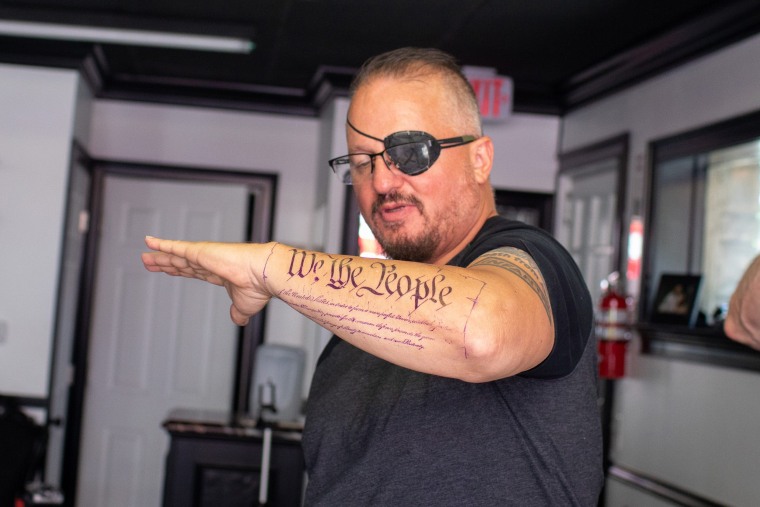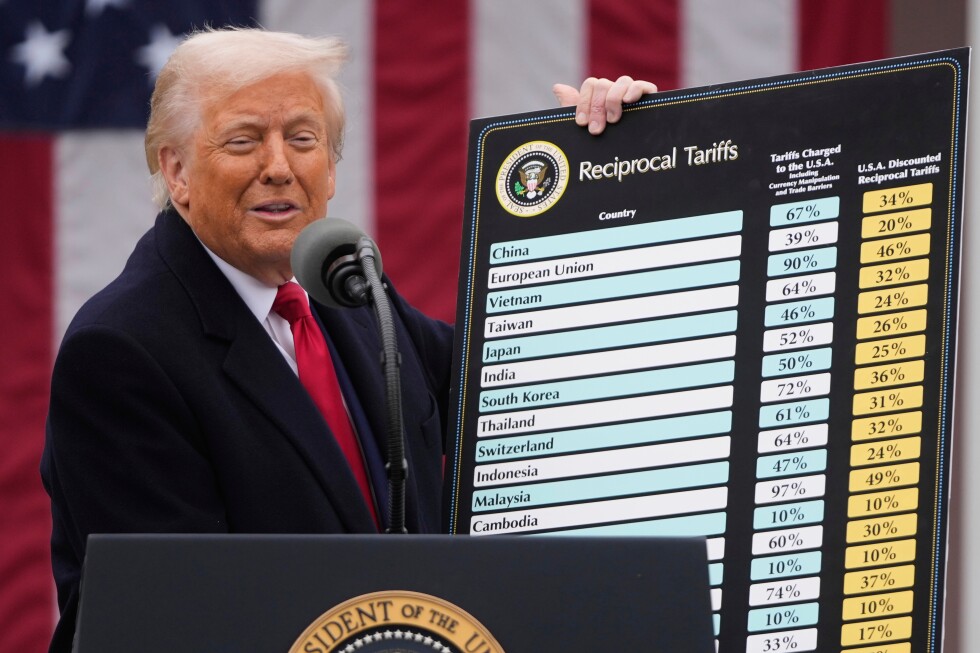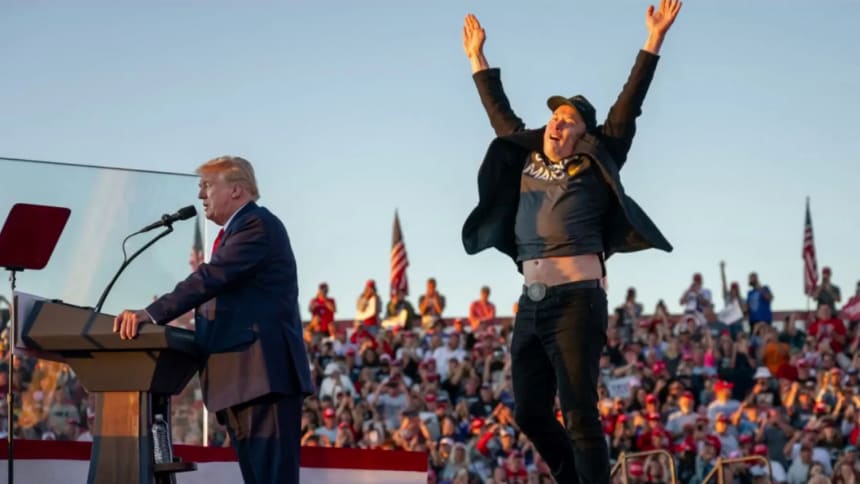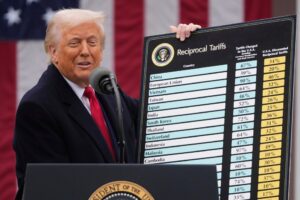The Dictatorship
The dangerous truth I learned after I finally escaped the leader of the Oath Keepers

In February 2018, my children and I escaped what I felt was a very dangerous marriage. I secretly packed the last of my children’s important documents into my oldest son’s truck while two of my kids were ducked down onto the floorboards. My heart was beating so hard, it was almost all I could hear. The next 30 seconds would change everything, one way or another.
As we pulled away, my then-husband ran out of the house, but then stopped. “Pick up a steak on your way back,” he called out. And that was it. Two years of planning led to that one moment.
As is often the case, things didn’t start out that way.
Even on our best days, when Stewart was at his most romantic, just the slightest curve could change everything.
The day I first spotted the now infamous founder of the Oath Keepers, Stewart Rhodes, he wasn’t clad in camouflage or a black cowboy hat. With still two good eyes, he wasn’t outfitted with his iconic leather eye-patch. Nor was he stirring up a sea of followers with a speech that ended with a fist pump and a resounding shout of “Hoo-uh!” Instead, in the early spring of 1991, he was shuffling awkwardly with his dance teacher, mouthing, “Cha-cha, 1-2-3, cha-cha, 1…” to himself in a Las Vegas dance studio as he tried to keep up with her steps. I noticed him immediately because it was the first time in a week that a student under 65 years old had been inside the strip mall dance studio plunked between Mountain View Tax Preparers and The Kopper Keg, where I was then training to be a dance instructor. Later, when we were properly introduced, he bought me a soda in lieu of a beer (I was still a teenager) from the Elks Lodge bar counter and we danced a rumba together.
As our relationship progressed, we made a lot of plans for the future. There was little sign of the person he would become; I had no way of knowing the man I was with would be convicted of seditious conspiracy and spend time in prison for orchestrating crowds to storm the U.S. Capitol; that newly-elected President Donald Trump would then commute his 18-year sentence and release him and he’d return to Capitol Hill praising the new Trump era.
Back then, on our days off, we would scan the newspapers for open houses and visit several in a day in our best clothes with fancy coffees in hand. At 25, he was only a couple years out of the Army after a parachuting accident had abruptly ended his military career, and he was still rethinking his life path. He told me all about his visions for the future that included college and maybe even graduate school.
He often suggested it in a way that made me feel guilty — that he didn’t have the supportive family that I did, that life wasn’t as easy for him.
I felt completely swept up. In retrospect, there was plenty in our relationship to give me pause. Even on our best days, when Stewart was at his most romantic, just the slightest curve could change everything. Knocking a drink over on the table was enough to “ruin the whole day.” He could go from laughing to slamming things around with no warning at all. And I would be left trying to make some sort of sense of it all.
Eventually, we decided the only way we could really move forward with our plans was for me to support him as he attended school. I dropped out of college, quit the job that I loved as a dance instructor and stopped attending time consuming dance auditions and competitions. I began working as an exotic dancer to pay for our rent as well as many of his hobbies like martial arts and nights out with his friends. I thought if I could give him all the love and support that he claimed to have missed out on growing up, that I could somehow heal him. He explained to me that he only lost his temper in the way that he did because he wasn’t on the path he was meant to be on. It was all just a sort of “restlessness,” as he called it, that he only experienced when he wasn’t on track. I was impressed that he seemed to feel such a sense of destiny.
He suggested starting an organization, something he had talked about a lot over the years. I had a glimmer of hope that this could be it; this could finally be the missing piece that made him whole.
He graduated Summa Cum Laude from the University of Nevada, Las Vegas, and after a stint working in Washington, D.C. for congressman Ron Paul in 1998, he graduated Yale Law School in 2004 just before turning 40. By the time we left New Haven for his clerkship with the Arizona Supreme court, we had three small children. But I was still waiting for his yet undefined “restlessness” to subside. His constant search for purpose meant we moved a lot. I counted 20 moves in as many years, several of them cross-country.
Finally, he claimed to have found his purpose. He was going to be a small-town litigator. Montana was going to be our new home. It was short lived, however, and just a year and half later we were back in Las Vegas, where he briefly worked for a construction defect law firm.
It was around this time that he suggested starting an organization, something he had talked about a lot over the years. I had a glimmer of hope that this could be it; this could finally be the missing piece that made him whole. But instead of healing his restlessness, it seemed to only embolden the worst in him.

His big idea was everything he thought it would be and more. His group immediately went viral within the 2009 Libertarian blog-o-sphere. He had had this ability to draw people around him for as long as I knew him. Throughout the years, he was always instructing classes. The topic mattered little — anything from women’s self-defense to the U.S. Constitution — but it always resulted in a cult following of hanger on-ers. People would encircle him while he talked on and on. Six p.m. classes turned into 10 p.m. parking lot lectures after the staff flickered the lights to usher us outside. The parking lot tour would often shift over to Denny’s until 2 a.m., with the kids and I nodding off at the table or sleeping in the car while we waited. Even after he climbed into the car to drive home, he’d roll down the window, the last of his audience leaning on the car door while he carried on to the last.
Oath Keepers at its height had 40,000 dues-paying members (many of them police officers and politicians according to a leaked membership list) making it the largest militia in modern American history. Stewart held his followers’ attention with his uncanny ability to elicit their emotions in the same mesmerizing way many cult leaders do. He often focused on disillusioned veterans who were hungry for purpose and to regain a sense of mission they had lost. Oath Keepers gave them not just a brotherhood, but a task: “One more tour of duty, because your oath never expired!” as Stewart often told them. He ramped them up with his fervent speeches and then set them loose to further his own goals. Several of his schemes made national news, the 2014 Bundy Ranch stand-off being just one.
In January 2021, my children and I watched from afar as the Oath Keepers, the Proud Boys and several smaller groups joined forces to storm the Capitol (Stewart himself did not enter the Capitol that day). We saw the kind of chaos that can be unleashed when more than one carnival barker works together toward a symbiotic con.
After the 2024 election, with Trump granting clemency for Stewart and many others who participated in the insurrection on Jan. 6, it might appear to some that their star is rising again. But I’m not convinced.
If there is one useful lesson I learned from 30 years with someone like Stewart Rhodes, it’s that false promises and the smoke and mirrors magic tricks to woo crowds are not something that can last. Real change requires more than just an emotional surge. Without substance, the fervor always ends eventually. And even the most skilled of flim-flam men lose the faith of the crowd when the house lights click back on. Today, I’m only looking ahead. I work full time, have taken a few college courses and have been slowly piecing together a memoir. I don’t know what the future holds, but, like many, I’m here to face it the best I can. And I hope that when the dust finally settles, we can all move forward.
Tasha Adams was married to Stewart Rhodes for three decades before leaving him, with her six children. She is currently working on a memoir.
The Dictatorship
A look at Trump’s false and misleading claims ahead of the State of the Union

WASHINGTON (AP) — On inflation, immigration, tariffs and matters of war and peace, President Donald Trump presented a frequently distorted account of the state of the nation Tuesday as he claimed a “turnaround for the ages” and myriad achievements that don’t pass scrutiny.
Trump has spent the last year boasting of his accomplishments while mocking the record of his predecessor, Joe Biden. But much of this bluster has been based on misinformation, which he again fell back on during his State of the Union address.
President Donald Trump delivers the State of the Union address to a joint session of Congress in the House chamber at the U.S. Capitol in Washington, Tuesday, Feb. 24, 2026. (Jessica Koscielniak/Pool Photo via AP)
President Donald Trump delivers the State of the Union address to a joint session of Congress in the House chamber at the U.S. Capitol in Washington, Tuesday, Feb. 24, 2026. (Jessica Koscielniak/Pool Photo via AP)
Here’s a closer look at the facts:
THE ECONOMY
CLAIM: “When I last spoke in this chamber 12 months ago, I had just inherited a nation in crisis, with a stagnant economy.”
THE FACTS: Not quite. Voters were unhappy with high inflation in the 2024 election, but the U.S. economy was far from stagnant. The U.S. gross domestic product rose 2.8% in 2024 after adjusting for inflation. That’s a stronger pace of growth than the 2.2% achieved last year during the start of Trump’s second term. ___
TRUMP: “Incomes are rising fast, the roaring economy is roaring like never before.”
THE FACTS: Not so. After-tax incomes, adjusted for inflation, rose just 0.9% in 2025, down from 2.2% in 2024, Biden’s last year in office. The annual gain in Trump’s first year is the smallest since 2022, when inflation soared and caused Americans’ inflation-adjusted income to drop.
Wages and salaries are the largest component of incomes, and their growth has slowed as companies have sharply slowed hiring. Workers typically command smaller wage gains in such an environment.
INVESTMENT
CLAIM: “I secured commitments for more than $18 trillion pouring in from all over the globe.”
THE FACTS: Trump has presented no evidence that he’s secured this much domestic or foreign investment in the U.S. Based on statements from various companies, foreign countries and the White House’s own website, that figure appears to be exaggerated, highly speculative and far higher than the actual sum. The White House website offers a far lower number, $9.6 trillion, and that figure appears to include some investment commitments made during the Biden administration.
A study published in January raised doubts about whether more than $5 trillion in investment commitments made last year by many of America’s biggest trading partners will actually materialize and questions how it would be spent if it did.
JOBS
CLAIM: “More Americans are working today than at any time in the history of our country.”
THE FACTS: Yes, but the number of Americans with jobs always rises as the population grows. The relevant figure is the proportion of Americans with jobs, which has fallen significantly in the last quarter-century, partly because the workforce is aging and more people are retired. The proportion of Americans with jobs peaked at 64.7% in April 2000, and was 59.8% in January.
The unemployment rate is a low 4.3%, but was lower when Biden left office in January 2025, at 4%. During Biden’s presidency, the rate fell to a 50-year low of 3.4%.
FOREIGN WARS
CLAIM: “My first 10 months I ended eight wars.”
THE FACTS: This statistic, which Trump frequently cites, is highly exaggerated.
Although he has helped mediate relations among many nations, his impact isn’t as clear-cut as he makes it seem. In at least two instances of peace he claims credit for achieving, there were no wars to end: no fighting between Serbia and Kosovo, and friction rather than fighting between Egypt and Ethiopia over the Grand Ethiopian Renaissance Dam.
The other wars Trump counts as those that he has solved were between Israel and Hamas, Israel and Iran, India and Pakistan, Rwanda and Congo, Armenia and Azerbaijan, and Cambodia and Thailand. His influence varied in those conflicts.
TARIFFS
CLAIM: Tariff revenues are “saving our country, the kind of money we’re taking in.”
THE FACTS: Though Trump has imposed massive tax hikes on imports, they’re not sizable enough to make a dent in the government’s annual budget deficits. Nor have the tariffs corresponded with manufacturing job gains.
President Donald Trump speaks during an event to announce new tariffs in the Rose Garden at the White House, April 2, 2025, in Washington. (AP Photo/Mark Schiefelbein, File)
President Donald Trump speaks during an event to announce new tariffs in the Rose Garden at the White House, April 2, 2025, in Washington. (AP Photo/Mark Schiefelbein, File)
Before the Supreme Court struck down Trump’s tariffs based on an emergency declaration, the Congressional Budget Office estimated that his new taxes would raise $3 trillion over 10 years, or $300 billion annually.
That’s not enough to cover the cost of his $4.7 trillion in tax cuts, including additional interest cuts, that favored companies and the wealthy. Nor is it enough to pay down an annual budget deficit that last year was $1.78 trillion.
___
CLAIM: “Tariffs paid for by foreign countries will, like in the past, substantially replace the modern day system of income tax.’’
THE FACTS: Not likely. Under Trump, tariff revenues have swelled — to $195 billion in the budget year that ended Sept. 30 from $77 billion the year before. But the import taxes accounted for less than 4% of federal revenue. Income taxes and payroll taxes that finance Social Security and Medicare account for 84%.
MEDICINE
CLAIM: “I took prescription drugs, a very big part of health care, from the highest price in the entire world to the lowest. That’s a big achievement. The result is price differences of 300, 400, 500, 600% and more.”
THE FACTS: This is impossible. Although the Trump administration has taken steps to lower drug prices, cutting them by more than 100% would theoretically mean that people are being paid to take medications.
Geoffrey Joyce, director of health policy at the University of Southern California’s Schaeffer Center, said in August that this claim is “total fiction” by the president. He agreed that it would amount to drug companies paying customers, rather than the other way around.
CRIME
CLAIM: “Last year, the murder rate saw its single largest decline in recorded history. This is the biggest decline. Think of it in recorded history, the lowest number in over 125 years.”
THE FACTS: Trump takes credit for a significant decrease in violent crime during 2025, claiming the murder rate in the U.S. dropped to its lowest in 125 years. But this is misleading. Crime had already been trending down in recent years.
A study released in January by the independent Council on Criminal Justice, which collected data from 35 U.S. cities on homicides, showed a 21% decrease in the homicide rate from 2024 to 2025.
The report noted that when nationwide data for jurisdictions of all sizes is reported by the FBI later this year, there is a strong possibility that homicides in 2025 will drop to about 4 per 100,000 residents. That would be the lowest rate ever recorded in law enforcement or public health data going back to 1900.
FBI reports for 2023 and 2024 show significant reductions in violent crimes.
Crime surged during the coronavirus pandemic, with homicides increasing nearly 30% in 2020 over the previous year, the largest one-year jump since the FBI began keeping records. But violent crime dropped to near pre-pandemic levels around 2022 when Biden was president.
IMMIGRATION
CLAIM: “We will always allow people to come in legally, people that will love our country and will work hard to maintain our country.”
THE FACTS: Trump has actually taken steps to restrict who can emigrate to the U.S., often in the name of protecting national security.
He suspended the refugee program on his first day in office and in October resumed the program but only in limited numbers for white South Africans.
Trump has also placed restrictions on who can travel or emigrate to the U.S. from nearly 40 countries around the world. Many of those countries are in Africa.
TAXES
CLAIM: “With the great big beautiful bill, we gave you no tax on tips, no tax on overtime and no tax on Social Security.”
THE FACTS: Though the president frequently says his big tax cut bill means no tax on Social Security, that’s not true for everyone. Not all Social Security beneficiaries will be able to claim the deduction, which lasts until 2029.
Those who won’t be able to do so include the lowest-income seniors who already don’t pay taxes on Social Security, those who choose to claim their benefits before they reach age 65 and those above a defined income threshold. The deductions also phase out as income increases.
ELECTIONS
CLAIM: “I’m asking you to approve the Save America Act to stop illegal aliens and other who are unpermitted persons from voting in our sacred American elections. The cheating is rampant in our elections.”
THE FACTS: He and his allies have never produced evidence of rampant election cheating. Experts say voter fraud is extremely rareand very few noncitizens ever slip through the cracks.
For example, a recent review in Michigan identified 15 people who appear to be noncitizens who voted in the 2024 general election, out of more than 5.7 million ballots cast in the state. Of those, 13 were referred to the attorney general for potential criminal charges. One involved a voter who has since died, and the final case remains under investigation.
1776
CLAIM: “The revolution that began in 1776 has not ended. It still continues because the flame of liberty and independence still burns in the heart of every American patriot.”
THE FACTS: To be clear, the American Revolution started the previous year, on April 19, 1775. The colonies declared independence in 1776. It ended Sept. 3, 1783.
___
Associated Press writers Rebecca Santana, Fatima Hussein, Josh Boak, Paul Wiseman, Christopher Rugaber, Elliot Spagat and Matthew Daly contributed to this report.
___
Find AP Fact Checks here: https://apnews.com/APFactCheck.
The Dictatorship
Trump reportedly isn’t sending a hospital ship to Greenland after all

Early Saturday, Denmark’s Arctic Command made an important announcement: It had evacuated a crew member of a U.S. submarine in need of medical attention, transporting the sailor to Greenland for emergency care.
Soon after, instead of expressing gratitude, Donald Trump published a bizarre statement to his social media platform. According to the American president, he and his administration were deploying “a great hospital boat to Greenland to take care of the many people who are sick, and not being taken care of there.” The Republican concluded, “It’s on the way!!!”
No one seemed to have any idea what in the world he was talking about. When a BLN reporter asked the Pentagon for some kind of explanation, it referred him to U.S. Northern Command, which in turn referred him to the Navy, which in turn referred him to the White House, which didn’t want to talk about it.
Soon after, an apparent explanation for the confusion came into focus. The Wall Street Journal reported:
The Pentagon has received no orders to deploy any U.S. Navy vessels to Greenland, according to U.S. officials, despite President Trump’s claim that a hospital ship is ‘on its way’ to the self-governing Danish territory.
The U.S. has two hospital ships, the East Coast-based USNS Comfort and the West Coast-based USNS Mercy, which are designed as floating medical-treatment facilities. Both vessels are in a shipyard in Mobile, Ala., according to maritime tracking information. The Comfort is undergoing repairs that are expected to be completed in April, while the Mercy is in the middle of a one-year maintenance period that began last July.
Oh. So when Trump publicly declared that a U.S. hospital ship was “on the way” to Greenland (with three exclamation points), that apparently wasn’t true. (The Journal’s report hasn’t been independently verified by MS NOW, though several news organizations have reported in recent days that the Navy has two hospital ships, both of which appear to be in dry dock in Alabama.)
If the reporting is correct, it’s probably a good thing, for a variety of reasons, that there is no hospital ship en route to Greenland. It doesn’t appear to be necessary, and Greenland didn’t want it there anyway.
But the larger significance here is that yet again, there is no meaningful connection between what Trump says he’s going to do and what he actually does.
The incumbent president has earned his reputation as an unusually prolific liar, but this is a specific kind of mendacity. Trump isn’t merely peddling nonsense about his perceived enemies or his record; this is a kind of dishonesty rooted in a disconnect from future events: The American president keeps telling the nation and the world about steps he’s going to take, only to decide later not to bother with them, without offering any kind of explanation for the shift.
After his major defeat at the U.S. Supreme Court, for example, Trump said he’d impose global tariffs at a 15% rate. That wasn’t quite rightand when the policy was announced soon after, the actual rate was 10%.
The Republican said he was going to cap credit card interest rates, and then he didn’t. He said he was going to impose steep economic penalties on any country that does business with Iran, and then he didn’t. He even said he was going to decertify aircrafts made in Canada, and then he didn’t.
For Americans who want to know what’s likely to happen with their own government, it’s generally a good idea to pay more attention to what Trump and his team do than to what they saybecause what he says has little bearing on reality.
Steve Benen is a producer for “The Rachel Maddow Show,” the editor of MaddowBlog and an MS NOW political contributor. He’s also the bestselling author of “Ministry of Truth: Democracy, Reality, and the Republicans’ War on the Recent Past.”
The Dictatorship
The military literally doesn’t know how to spend an extra $500 billion
President Donald Trump loves a big number. Last year, even as Elon Musk’s DOGE was hacking away at alleged inefficient and fraudulent federal spending, Trump proposed a record-breaking $1 trillion defense budget. Even though the budget Congress passed fell short of Trump’s proposal, the almost $900 billion authorization was still the biggest ever. Even so, Trump said in January that his next proposal number would be 50% higher than the last one.
Among many, many other problems with a $1.5 trillion Defense Department budgetone in particular stands out: The military has no idea what it would do with that much money. That’s not hyperbole, based on a recent report from The Washington Postciting sources who spoke anonymously to characterize internal matters. Trump’s extragavent proposal is apparently causing a delay in the White House’s annual budget proposal:
Since Trump agreed to the higher number, White House aides and defense officials have run into logistical challenges about where to put the money, because the amount is so large, the people said. The White House is more than two weeks behind its statutory deadline to send its budget proposal to Congress, in part because it is unclear how precisely to spend the additional $500 billion, according to the people familiar with the matter.
Senior Pentagon officials have consulted with former senior defense officials as they grapple with the challenge, said one person familiar with the matter. Part of the discussion centers on how much emphasis should go into buying weapons the military already uses versus investing in high-end technologies, such as artificial intelligence, that the Pentagon envisions as part of its future.
An agency being flooded with more cash than can be reasonably spent in a year wouldn’t be the worst problem in the world. But when that agency is the Pentagon, which can already act as a budgetary black hole, it becomes deeply worrying to learn that Trump wants to turn a massive fiscal firehose its way. Trying to give that much more money to an agency that’s already overfunded says a lot about Trump’s misplaced priorities.

There are four major buckets within the DOD budget that the new funding could go toward: operations and maintenance, military personnel, procurement, and research and development. It’s apparently not clear, though, which areas would benefit most from such a sudden surge in money. The administration’s own National Security Strategywhich calls for drawing down U.S. involvement in Asia and the Middle East, makes it even more confusing to imagine what that much surplus could be spent on.
Among many, many other problems with a $1.5 trillion Defense Department budget, one in particular stands out: The military has no idea what it would do with that much money.
Though Trump announced a desired $1.5 trillion budget on social mediaaccording to the Post, the idea came from Defense Secretary Pete Hegseth, who shares the president’s obsession with optics.
“We are rebuilding the arsenal of freedom,” Hegseth told Lockheed Martin employees on a Texas assembly line building F-35 fighter jets. (The Trump administration recently sold a number of such jets to Saudi Arabia.) Tellingly, Hegseth said the staggering top line is “a message to the world” and that the funding would be used “wisely … [to] make sure we’re squeezing everything possible into the best capabilities in the world.”
Hegseth emphasized the massive budget request at a factory building the U.S. military’s most expensive and overbudget plane. And as for his claim that the money would be used wisely, let’s not forget that the Government Accountability Office says the Defense Department is the “only major federal agency that has never gotten a ‘clean’ audit opinion (i.e., when auditors find that financial statements are presented fairly).”
The amount of money that already disappears into the Pentagon’s maw is troubling enough without adding $500 billion on top of it. Consider that White House budget chief Russell Vought, as head of the Office of Management and Budget, has overseen the process of firing tens of thousands of federal employees and tried to slash billions in life-saving government programs from the budget. According to the Post, Vought was one of the main members of the administration to push back on Hegseth’s pitch, but to no avail.
We should all hope that that whatever budget Hegseth sends to the Pentagon gets drastically reduced before Congress makes it law. It’s ridiculous and discouraging to see the Pentagon be handed more money than it knows what to do with at a time when even a small percentage of that new spending could change millions of Americans’ lives for the better.
Hayes Brown is a writer and editor for MS NOW. He focuses on politics and policymaking at the federal level, including Congress and the White House.
-

 The Dictatorship1 year ago
The Dictatorship1 year agoLuigi Mangione acknowledges public support in first official statement since arrest
-

 Politics1 year ago
Politics1 year agoFormer ‘Squad’ members launching ‘Bowman and Bush’ YouTube show
-

 The Dictatorship6 months ago
The Dictatorship6 months agoMike Johnson sums up the GOP’s arrogant position on military occupation with two words
-

 Politics1 year ago
Politics1 year agoBlue Light News’s Editorial Director Ryan Hutchins speaks at Blue Light News’s 2025 Governors Summit
-

 Politics1 year ago
Politics1 year agoFormer Kentucky AG Daniel Cameron launches Senate bid
-

 The Dictatorship1 year ago
The Dictatorship1 year agoPete Hegseth’s tenure at the Pentagon goes from bad to worse
-
Uncategorized1 year ago
Bob Good to step down as Freedom Caucus chair this week
-

 Politics10 months ago
Politics10 months agoDemocrat challenging Joni Ernst: I want to ‘tear down’ party, ‘build it back up’



